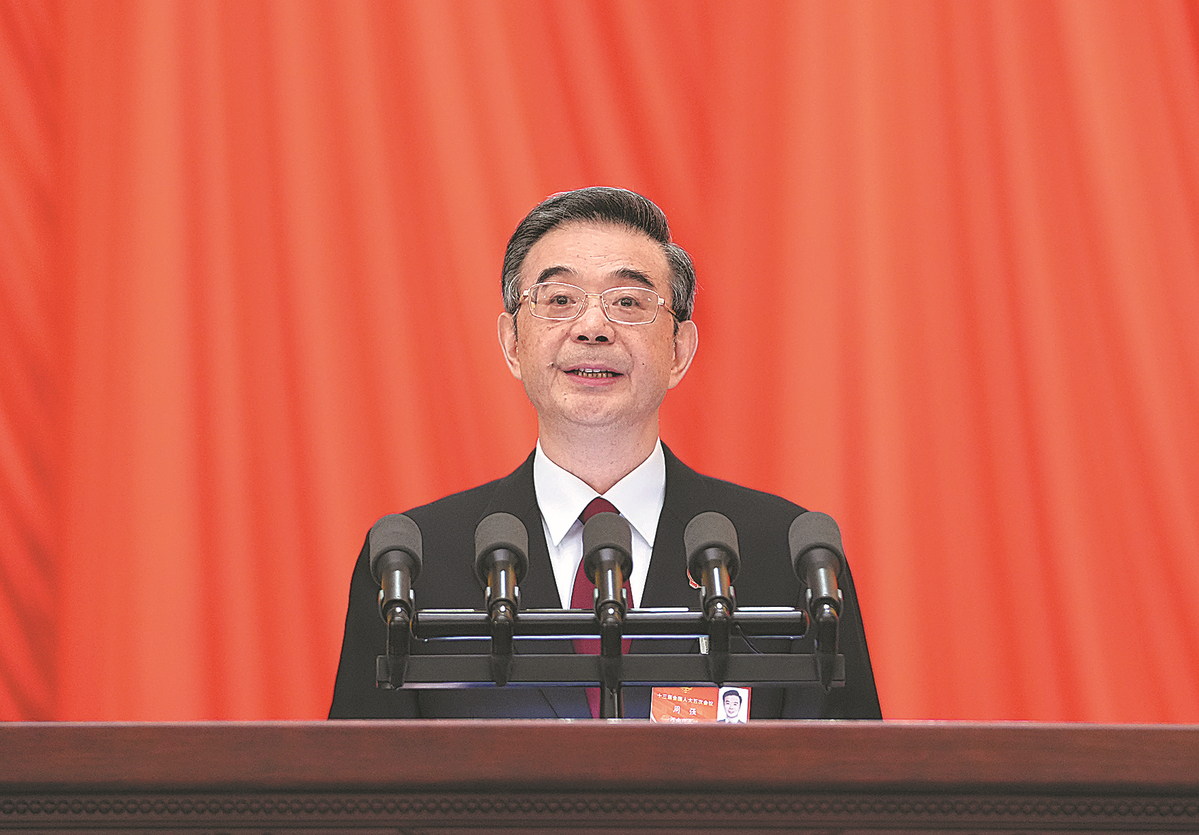Nation's personal information protection efforts bear fruit

Zhou Qiang, president of the SPC, delivers a speech. [Photo provided to chinadaily.com.cn]
Given that protection of personal information has become an urgent issue in this information era, "we've harshly combated crimes of stealing or purchasing personal data through the use of malicious programs or phishing software", Zhou Qiang, president of the SPC, said while making the report to the NPC on Tuesday.
"Those who infringed upon personal information, instigated online bullying and defamed others in cyberspace were also held criminally liable," he said.
In one case highlighted by the top court, a person surnamed Li was convicted of infringing upon other's personal information by making and using software that could steal people's photos if they downloaded and installed the software.
To help prevent misuse of facial recognition systems, a major feature of artificial intelligence applied in many areas, the SPC also issued a judicial interpretation last year, clarifying boundaries for the use of such technology.
The rising number of cases handled by prosecutors and judges reflects the legal strength of China's Civil Code-a fundamental and comprehensive code that highlights the protection of personality rights and took effect on Jan 1, 2021-and the Personal Information Protection Law that took effect on Nov 1, 2021, according to He Xiaorong, vice-president of the SPC.
"The two laws are our legal basis for protecting personal information and guaranteeing people's dignity," he said.
- China's top legislator holds talks with speaker of Zambia's National Assembly
- China's top legislator meets Finnish president
- Lawmakers to meet early next month to deliberate draft laws, reports
- Senior Chinese legislator meets Ethiopian guests in Beijing
- Senior legislator solicits opinions on revisions to education laws



